We are in Phnom Penh, Cambodia and have been on the Mekong River for the past few days, without Internet.
Before thinking about what we are experiencing in Cambodia, I want to offer a few more reflections on Vietnam. We are discussing short stories written by Vietnamese writers. They are subtle, complex, and challenging to probe.
We have had three local guides in Vietnam, one in Hanoi, one in Saigon, and one on the Mekong River up to the Cambodian border. Each was a young man, eager to be informative and helpful. Hard to generalize from a very few individuals, but the Hanoi guide seems a bit more formal and reticent, both proud and a little prudish. The two in the south were more outgoing and seemed more familiar and western in both dress and manner. All were quite open about their personal view of the country’s history and present government.
The degree to which the past can influence, but not determine, the future is shown by our first and last guides. The first was the son of a North Vietnamese soldier and patriot. His father lost an eye in the war and was a member of the Communist party and a teacher of Communist theory to workers in a vocational school. The father and his son had a wide range of benefits and perks owing to the side of the war the father was on and his injury. The guide could become a member of the party but would have to work for the state. Neither he nor his brother has taken this option.
The last guide we had was also the son of a soldier who was injured in the war. But he fought on the side of the south. There has been no assistance, medical or otherwise, to injured vets on the losing side. This guide’s father and many like him were sent to re-education camps for long periods. There is no way their descendants would ever be considered for Communist party membership. This man had been a professional chemist but was assigned to work in a brick works in the countryside. The son was apprenticed to do the same dirty work, but at some point, the dad was able to move so his son could get a better education.
Both young men now have equivalent positions in the tourism sector but got there by different routes. Both think a one-party system will prevail for the foreseeable future. They both seem to accept this, citing the turmoil that can arise in countries with multiple parties. Both recognize Ho Chi Minh as the founding father of an independent Vietnam, yet both acknowledge the degree to which Communism has abandoned its theoretical ideals in favour of the free market and lack of a social safety net. Both admit corruption is rampant.
It is impossible to say what each thought of the US involvement. They are discrete and they and their countrymen seem to have an uncanny ability to let bygones be bygones. Moreover, they were not alive during the war. As for me, I can’t help wonder why the US involvement didn’t include some compensation to those who fought along side the Americans and were left to pick up the pieces of their lives after the US pulled out.
We will continue talking about Vietnam’s history, culture and values as we discuss more stories and a novel we were advised not to bring. I am sure we will be left with many loose ends.


